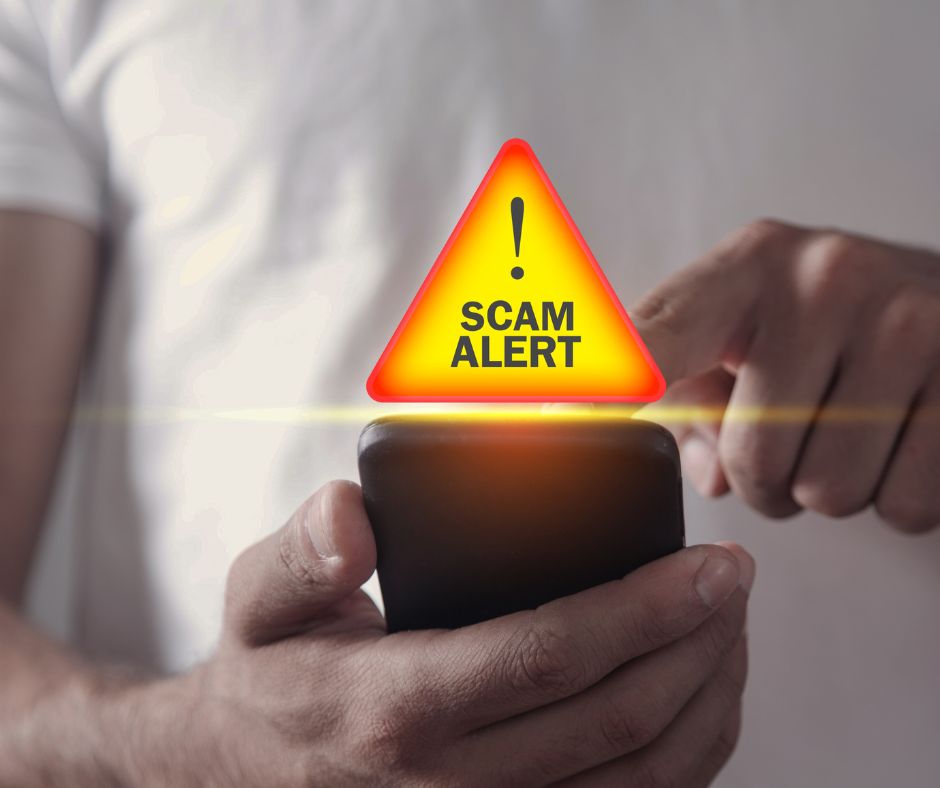 Don’t be a victim of phishing scams, including those involving electronic signature requests. Phishing attacks are attempts by cybercriminals to deceive you into revealing sensitive information or performing actions that could compromise your security.
Don’t be a victim of phishing scams, including those involving electronic signature requests. Phishing attacks are attempts by cybercriminals to deceive you into revealing sensitive information or performing actions that could compromise your security.
Coulson Technologies recommends these tips to avoid becoming a victim of electronic signature request phishing scams:
- Verify the Sender: Always double-check the sender's email address and domain. Phishers often use addresses that resemble legitimate ones but have slight variations.
- Don't Click on Suspicious Links: Avoid clicking on links or downloading attachments from unfamiliar or unexpected emails. Instead, hover over links to see the actual URL before clicking.
- Check the Content: Examine the email's content for signs of poor grammar, spelling mistakes, or unusual language. Legitimate organizations typically maintain a professional tone.
- Use Multi-Factor Authentication (MFA): Whenever possible, enable MFA for your email and other accounts. This adds an extra layer of security even if your password is compromised.
- Beware of Urgent Requests: Scammers often create a sense of urgency to pressure you into taking immediate action. If an email demands urgent attention, independently verify its legitimacy before proceeding.
- Contact the Sender: If you receive an unexpected electronic signature request, contact the sender using a known, legitimate communication channel (not by replying to the email) to confirm the request's authenticity.
- Use Trusted Platforms: If you're unsure about an electronic signature request, use a trusted platform to verify the request's legitimacy, such as logging into your account directly on the service provider's official website.
- Educate Yourself and Others: Stay informed about phishing tactics and share this information with friends, family, and colleagues to help them recognize and avoid scams.
- Keep Software Updated: Ensure that your operating system, antivirus, and email client are up to date. This helps protect against known vulnerabilities.
- Use Spam Filters: Enable spam filters on your email account to reduce the chances of phishing emails reaching your inbox.
- Use Strong Passwords: Create strong, unique passwords for your accounts and update them regularly. A password manager can help you manage and generate strong passwords.
- Be Cautious with Personal Information: Be cautious about sharing personal or sensitive information online. Legitimate organizations typically don't request sensitive data through email.
- Verify Requests with Higher Authorities: For business-related electronic signature requests, verify with higher-ups or colleagues before proceeding, especially if the request is unexpected.
- Report Suspicious Emails: If you receive a phishing email, report it to your email provider and relevant authorities. This helps prevent others from falling victim to the same scam.
Remember that scammers are becoming increasingly sophisticated, so staying vigilant and cautious is crucial in protecting yourself and your information from electronic signature request phishing scams and other types of cyberthreats.
For more tech tips, sign up for Coulson Technologies’ newsletter.
#TechTips #TechAdvice #coulsontech #technology #technologytips #cybersecurity #hacking #security












